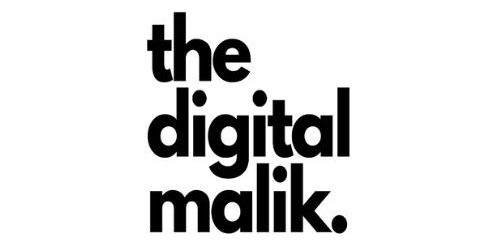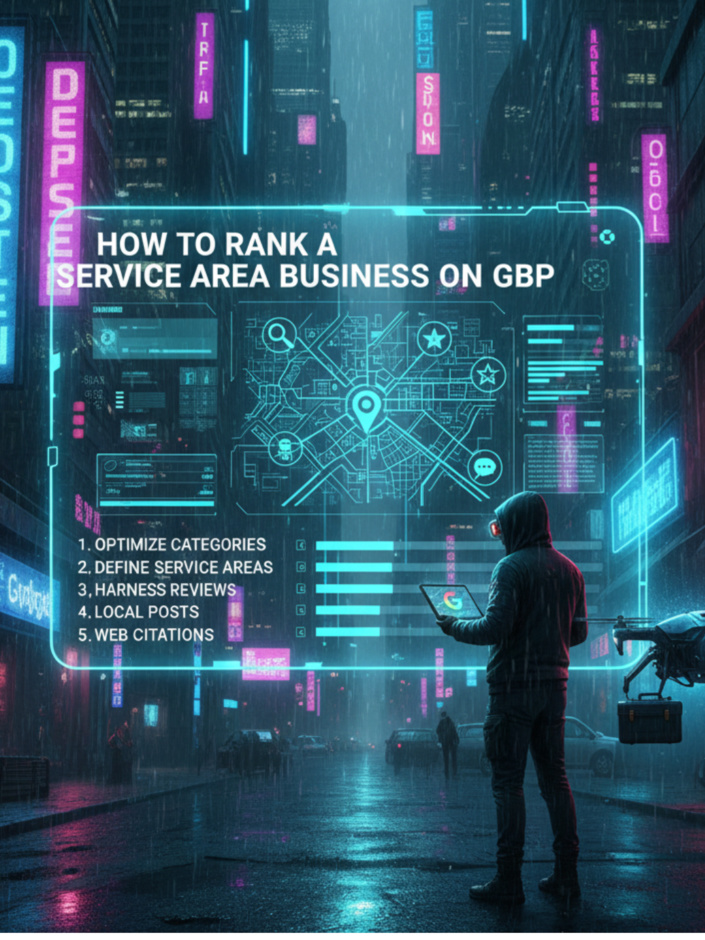Local Lead Generation: From Zero to Hero in 2025

Let’s be honest – growing a local business in today’s world feels like you’re juggling flaming torches while riding a unicycle, right?
One minute you’re trying to master Digital Marketing, the next you’re wondering if good old-fashioned flyers still work.
Well, I’ve got some good news: local lead generation doesn’t have to be rocket science.
In this guide, we’re going to break down everything you need to know about connecting with customers right in your backyard.
Think of this as your friendly neighborhood guide to turning strangers into loyal customers without breaking the bank or your sanity.
Key Takeaways:
- Your Google Business Profile (GBP) is your digital storefront. An incomplete profile means lost leads to competitors who’ve optimized theirs, as Google rewards active management with higher visibility.
- Local SEO builds trust, not just rankings. Consistent Name, Address, and Phone (NAP) information, strong reviews, and local content establish credibility, making customers choose businesses that feel reliable and local.
- The “near me” economy is booming for optimized businesses. Over 80% of “near me” searches result in in-store visits; if you’re not targeting local intent keywords, you’re missing out on high-intent buyers.
- Industry-specific optimization is your hidden advantage. Tailoring content—like neighborhood guides or service-area pages—to your niche (e.g., a dentist vs. a contractor) positions you as the expert in your field.
- Local SEO is a continuous flywheel, not a one-time fix. Businesses that consistently update their GBP, gather reviews, and publish local content build long-term momentum and dominate their local market.
Why Local Lead Gen Matters More Than Ever?
Before we dive into the nitty-gritty, let’s talk about why focusing on local leads is like finding a goldmine in your own backyard.
In an increasingly digital world, people still crave that personal, community connection.
They want to support businesses that “get” their local culture, understand their specific needs, and feel like part of their neighborhood fabric.
Local SEO + GBP (GMB) = Your Success Formula!

If you’re a local service professional—whether you’re a real estate agent, loan officer, dentist, or general contractor—your success hinges on one thing: being found by the right customers at the right time.
And here’s the truth: 80% of local leads come from two key sources—Google My Business (GMB) rebranded to Google Business Profile and Local SEO.
When someone searches “best dentist near me“ or “emergency plumber in [City]“, Google doesn’t just show random businesses.
It curates results based on proximity, relevance, and authority. If your business isn’t optimized for these factors, you’re losing leads to competitors who are.
This guide will break down:
- Google Business Profile mastery (your digital storefront).
- Local SEO fundamentals (how to rank higher in local searches).
- Industry-specific quick wins (tailored strategies for your profession).
- A 30-day action plan (step-by-step execution).
By the end, you’ll know exactly how to dominate local search results and generate more leads—consistently
GBP Command Center: 5 Ultimate Local Lead Generation Machine
Your GBP (aka GMB) profile is the most powerful local lead generation tool you have. If it’s incomplete or unoptimized, you’re leaving money on the table.
1. Complete Profile Optimization: The Foundation of Your Local Presence
Let’s start with the basics. Your Google Business Profile (GBP) is your digital handshake, your online storefront, and your first impression. Making sure it’s 100% complete and accurate is non-negotiable.
Business Name, Address, Phone (NAP): Consistency is King
Believe it or not, many businesses get this wrong. Your NAP (Name, Address, Phone Number) must be 100% consistent across all online platforms.
We’re talking your website, social media, Yelp, Yellow Pages, and every other directory out there.
Benefit: Why is this so crucial? Google uses these consistent signals to verify your business’s legitimacy and location. Inconsistencies can confuse Google, leading to lower rankings or even your business not appearing at all.
When your NAP is locked down, Google trusts your information more, which boosts your visibility in local search results and helps potential customers find you without a hitch.
Imagine a customer trying to call you, only to find a different number listed on a different site – frustrating, right?
Consistency makes it easy for them to connect.
Categories: Guiding Google (and Customers) to Your Niche
Telling Google exactly what you do in choosing the most relevant primary and secondary categories for your business is incredibly important.
- Don’t be generic! If you’re a “dentist,” don’t just put “medical.”
- Be Specific: “Cosmetic Dentist” or “Pediatric Dentist” if that’s your specialty.
Google allows you to choose one primary category and up to nine additional categories. Use them wisely!
Benefit: Selecting the right categories is like having a perfectly tuned GPS for your customers.
When someone searches for “best Italian restaurant near me,” Google needs to know you’re an Italian restaurant.
Accurate categorization ensures that your business appears for the most relevant searches, leading to higher quality leads who are genuinely looking for what you offer.
This translates directly into more foot traffic or calls, because you’re attracting people who are already interested in your specific service.
Business Hours: Setting Clear Expectations
Keep your business hours updated, including any special hours for holidays. This seems simple, but missed appointments or frustrated customers arriving at a closed door can severely damage your reputation.
Benefit: Clear and up-to-date business hours provide a seamless customer experience. It builds trust and professionalism.
Customers appreciate knowing when they can reach you or visit.
Plus, Google often displays these hours prominently in search results, making it easy for people to decide if they can visit you right away, directly increasing your chances of immediate engagement and visits.
Attributes: Highlighting Your Unique Selling Points
GBP (aka GMB) offers a fantastic feature called “attributes” where you can add specific details about your business.
This can include things like “Women-owned,” “Veteran-led,” “Wheelchair accessible,” “online appointments,” “free Wi-Fi,” “free consultation,” or “outdoor seating.”
Benefit: Attributes are powerful because they allow you to showcase what makes your business unique and appealing to specific audiences.
For instance, a “Women-owned” attribute can resonate deeply with certain customers who prefer to support such businesses.
“Wheelchair accessible” is not just a nice-to-have; it’s a critical piece of information for many.
By providing these details, you not only improve your visibility for niche searches but also build stronger connections with customers who value these characteristics, leading to more loyal patronage.
Service Areas: Defining Your Reach
If your business serves customers at their location (like contractors, plumbers, realtors, or mobile massage therapists), specifying your service areas is absolutely critical.
This isn’t just about your physical address; it’s about the cities or neighborhoods you’re willing to travel to.
Benefit: Specifying service areas helps Google understand your operational reach.
This means your business will show up for searches within those defined areas, even if the searcher isn’t physically at your business location.
This expands your potential customer base significantly by reaching individuals who might not have found you otherwise, especially for businesses that operate remotely or deliver services to clients.
2. Review Management Systems: Your Reputation Amplified
Customer reviews are the lifeblood of any local business. They are powerful social proof, building trust and influencing purchasing decisions more than almost anything else.
A robust review management system is your secret weapon.
Get More Reviews: Automate and Simplify
Actively seeking out reviews is paramount. Implement systems to automate review requests via email or SMS.
Tools like Birdeye or Podium are fantastic for this, simplifying the process for both you and your customers. Make it easy for them to leave a review!
Benefit: Your prominence in Google’s ranking factors increases with the number of positive reviews you have.
Additionally, a consistent flow of fresh reviews tells Google that your company is relevant and active. Increased search visibility and credibility are the direct results of this.
Consider this: are you more likely to pick a company with 500 reviews or just five when searching for a new service?
More reviews translate into more clicks, more trust, and eventually more new clients!
Respond to All Reviews: Engage and Build Trust
This is huge. Whether positive or negative, respond to ALL reviews. For positive reviews, a simple “thank you” goes a long way.
For negative reviews, a professional, solution-oriented response is critical.
Don’t get defensive; acknowledge their concern, offer a solution, and invite them to connect offline to resolve the issue.
Benefit: Responding to reviews shows potential customers that you are engaged, that you value feedback, and that you care about customer satisfaction.
This humanizes your business and builds immense trust.
For negative reviews, a thoughtful response can actually turn a bad experience into a positive impression, demonstrating your commitment to service recovery.
It also mitigates the damage of negative feedback, proving to others that you are responsive and willing to address issues, which can actually strengthen your reputation over time.
Embed Reviews on Your Website: Social Proof in Action
Don’t just keep your great reviews on Google. Embed them directly onto your website. Many GMB plugins or widgets can help you pull these in automatically.
Benefit: Displaying reviews on your website provides instant social proof to visitors, increasing their confidence in your business.
When potential customers land on your site and see authentic, positive feedback from others, it significantly boosts conversion rates.
It shortens the decision-making process by reassuring them they are making a good choice, leading to more inquiries, bookings, or purchases directly from your site.
3. GMP Posts Strategies: Staying Active and Engaging
GBP (aka GMB) posts are like mini-blog entries or social media updates directly on your Google Business Profile.
They are a fantastic way to keep your profile fresh, share news, and engage with your audience.
Types of Posts: Varied and Engaging Content
Google offers different types of posts:
- Offers: Promotions, discounts, special deals.
- Events: Announce upcoming workshops, sales, or community gatherings.
- Updates: Share news about your business, new products, or recent achievements.
- FAQs: Address common customer questions or provide helpful tips.
Benefit: Regularly using GBP posts keeps your profile dynamic and signals to Google that your business is active.
This can lead to improved local rankings as Google favors engaged businesses.
For customers, these posts provide timely and relevant information, showcasing your expertise and current offerings, which can drive immediate interest and action.
For example, an “offer” post can directly lead to new sales, while an “event” post can boost attendance.
Frequency: Consistency for Visibility
Aim for at least 1-2 GMB/GBP posts per week. Consistency is more important than sporadic bursts of activity.
Benefit: Frequent posting keeps your content fresh and visible on your GMB/GBP profile and in search results.
This consistent activity tells Google you’re an active, relevant business, which can positively influence your local search ranking.
It also means customers who check your profile will always find something new and engaging, keeping them informed and interested in what you’re doing.
CTAs: Driving Direct Action
Always include a clear Call-to-Action (CTA) in your posts. Examples include “Book Now,” “Call Today,” “Get Offer,” “Learn More,” or “Visit Website.”
Benefit: CTAs are crucial for converting interest into action. They guide users on what to do next, making it incredibly easy for them to engage with your business.
By providing direct pathways like “Book Now” or “Get Offer,” you streamline the conversion process, leading to more immediate leads, appointments, or sales.
This directly impacts your bottom line by turning passive viewers into active customers.
4. Photo & Video Optimization: Visual Appeal That Converts
Humans are highly visual creatures, so high-quality photos and videos on your GMB/GBP profile are not just nice to have; they are essential for captivating your audience and demonstrating your business’s appeal.
High-Quality Images: Showcasing Your Business
Upload high-quality images of your team, your office or storefront, your products, and your services in action.
Google actually favors businesses that have fresh, relevant visuals.
Benefit: Professional, appealing images make your GMB profile stand out and create a strong first impression.
They allow potential customers to visualize your business, your team, and your offerings, building trust and familiarity even before they visit.
This enhances user engagement with your profile and can significantly increase click-through rates from the local pack, as people are more likely to choose a business that looks inviting and professional.
Before/After Photos: Demonstrating Value
This is especially effective for certain industries like contractors, dentists, landscapers, or beauty services. Before/after photos powerfully illustrate the transformation and value you provide.
Benefit: Nothing speaks louder than results! Before/after photos are incredibly compelling and serve as powerful visual testimonials.
They directly demonstrate the quality of your work and the tangible benefits of your services, making it easy for potential customers to see the value you offer.
This visual proof can accelerate the decision-making process and significantly boost conversion rates by showcasing your expertise and impact.
Virtual Tours: Immersive Experiences
For businesses like real estate agents, medical offices, or unique retail spaces, a virtual tour can be a game-changer. These 360-degree views allow customers to “walk through” your space from their own device.
Benefit: Virtual tours provide an immersive and transparent experience for potential customers.
They can explore your facilities at their leisure, reducing uncertainty and making them feel more comfortable before they even visit.
This level of transparency builds significant trust and confidence, making your business more appealing and increasing the likelihood of in-person visits or appointments because they already feel familiar with your space.
5. Local Pack Ranking Factors: Understanding the Google Algorithm
To truly dominate the Google Business Profile Command Center, it helps to understand the core factors Google Maps uses to determine who ranks highest in that coveted Local Pack.
Proximity: The “Near Me” Factor
This is straightforward: how close your business is to the searcher. If someone searches “coffee shop near me,” Google prioritizes businesses geographically close to that person.
Benefit: While you can’t move your business, optimizing your GMB profile and consistently updating your NAP helps Google accurately pinpoint your location.
This ensures that when local searches occur, your business is correctly identified as a relevant option, thereby maximizing your visibility for local, “near me” searches and attracting customers who are ready to visit.
Relevance: Matching the Search Query
How well your business matches the search query is critical. If someone searches for “vegan bakery,” Google needs to know you’re a vegan bakery, not just a general bakery.
This goes back to your categories, attributes, and even the keywords used in your posts and reviews.
Benefit: By accurately and comprehensively describing your business through categories, attributes, and strategic use of keywords in your posts, you ensure Google understands precisely what you offer.
This leads to your business appearing for highly specific and relevant searches, attracting customers who are actively looking for your exact services or products, resulting in higher conversion rates.
Prominence: Your Online Reputation
Your reputation is a huge ranking factor. This includes the quantity and quality of your reviews, the number of backlinks to your website, and citations (mentions of your business name, address, and phone number across the web).
Benefit: A strong online reputation, built through a high volume of positive reviews and robust online presence, significantly boosts your authority and trustworthiness in Google’s eyes.
This directly translates to higher rankings in the Local Pack.
Furthermore, a stellar reputation acts as a powerful magnet for new customers, as people are more likely to choose a business with a proven track record of excellent service, leading to a continuous flow of new leads.
Pro Tip: Unleash the Power of Google’s Product Editor
Don’t overlook this gem! Google’s Product Editor within your GMB dashboard allows you to add specific services or products with pricing.
For example, if you’re a dental office, you can list “$99 Dental Cleaning” or “Teeth Whitening – $250.” If you’re a salon, “Men’s Haircut – $30.”
Benefit: This feature is gold because it provides immediate transparency to potential customers, answering a key question right from the search results.
Displaying pricing can attract highly qualified leads who are already comfortable with your cost structure.
It also enables you to showcase your full range of services or products directly on your GMB profile, making it more informative and appealing.
This clarity often leads to higher conversion rates as customers feel more informed and confident in contacting you.
GBP/GMB Command Center: The Rundown
Phew! That’s a lot of ground we covered, but every single point is a lever you can pull to dramatically improve your local online presence and, most importantly, generate more leads and customers.
Think of your Google Business Profile not as a static listing, but as an active, breathing marketing tool.
It’s your Command Center for local dominance.
By consistently optimizing your profile, actively managing your reviews, engaging through posts, showcasing your business visually, and understanding the ranking factors, you’re not just hoping customers find you – you’re making it impossible for them to miss you.
Start implementing these strategies today, and watch your local search visibility soar, your customer base grow, and your revenue climb.
The money on the table? It’s yours for the taking.
What’s the one thing you’re going to optimize on your GMB/ GBP profile today?
The Hyper-Local Advantage: GBP for Service-Based Businesses
Alright, a strong Google My Business (GMB) or Google Business Profile (GBP) isn’t just a suggestion – it’s a necessity.
It’s your virtual storefront, often the first point of contact for potential customers.
But simply having a GMB/GBP profile isn’t enough; you need to leverage it strategically, especially within your specific industry.
This isn’t about generic tips; it’s about quick, impactful wins tailored to service-based businesses that will boost your visibility, attract more leads, and ultimately, put more money in your pocket.
Think of these as your Industry-Specific Service-Based targeted actions that maximize your GMB profile’s potential and highlight your unique expertise.
Real Estate Agents: Become the Neighborhood Expert
For real estate agents, your GMB profile can be a powerful tool for establishing hyper-local authority and trust.
- Neighborhood Guides
- Instead of generic city overviews, create in-depth “Neighborhood Guides.”
- Think “Living in Downtown Miami: Schools, Restaurants, Homes” or “Exploring the Charms of Kailua Town: A Resident’s Guide.”
- These can be GMB posts linking to dedicated pages on your website or even standalone posts with key highlights.
- Benefit:
- This positions you as the ultimate local expert. When people search for information about specific areas, your GMB profile (and linked content) becomes a go-to resource.
- This attracts highly qualified leads who are already interested in moving to or investing in those precise neighborhoods, directly increasing your chances of securing new clients.
- Market Reports
- Share concise “Market Reports” directly through GMB posts.
- Examples include “2024 [City] Housing Trends: What You Need to Know” or “Q1 [Neighborhood] Home Sales Analysis.”
- Benefit:
- Providing valuable, timely market insights establishes your credibility and demonstrates your deep understanding of the local real estate landscape.
- This builds trust with potential clients, showing them you’re knowledgeable and on top of current trends, which is crucial for high-value decisions like buying or selling a home.
Loan Officers: Your Guide to Homeownership
Loan officers can use GMB to demystify the mortgage process and build rapport with prospective homebuyers.
- Local Market Expertise Content:
- Create GMB posts focused on localized financial insights.
- Such as “First-Time Homebuyer Programs in [City] You Didn’t Know About” or “Understanding Property Taxes in [County].”
- Benefit:
- This type of content directly addresses common pain points and questions for local homebuyers.
- By providing specific, geographical advice, you become an invaluable resource, attracting individuals who are actively looking for mortgage assistance in your area.
- This positions you as a trusted advisor, leading to more direct inquiries.
- FAQ-Style Posts:
- Use GMB posts to answer common questions in an easy-to-digest “FAQ-style” format.
- Think “How to Get the Best Mortgage Rate in [State]” or “What Documents Do I Need for a Home Loan Application?”
- Benefit:
- FAQ posts proactively answer client questions, reducing friction and demonstrating your accessibility and knowledge.
- This helps potential clients feel more confident and prepared to reach out, accelerating their decision-making process and increasing your lead conversion rate.
General Contractors: Showcase Your Craft and Reach
General contractors thrive on showcasing their work and defining their service areas. Your GMB/GBP profile is perfect for both.
- Service Area Optimization:
- Beyond just listing your general service area, create dedicated pages on your website for each specific city or major neighborhood you serve.
- Then, link to these pages from relevant GMB posts or your website link in your profile.
- Benefit:
- This hyper-local approach significantly improves your visibility for “contractor in [specific city]” searches.
- By signaling to Google (and potential clients) your precise operational areas, you attract highly targeted leads who are in your immediate vicinity, leading to more relevant inquiries and booked projects.
- Project Case Studies:
- Use GMB posts to highlight “Project Case Studies.” This means “before/after” photos combined with a brief description and, crucially, client testimonials.
- Benefit:
- Nothing sells your work like visual proof and client satisfaction.
- Before/after photos demonstrate your skill and the transformation you provide, while testimonials build immediate social proof and trust.
- These compelling case studies directly address potential clients’ desire to see tangible results, significantly boosting their confidence in your services and leading to more conversion-ready leads.
Dentists: Building Community Trust and Healthy Smiles
Dentists can leverage GMB to educate, reassure, and attract families to their practice.
- Family-Focused Content:
- Create GMB posts with practical, family-oriented dental advice.
- Examples include “Kids’ Dental Care Tips for [City] Parents” or “Dealing with Wisdom Teeth Pain: A Guide for Teens.”
- Benefit:
- This type of content showcases your expertise and your commitment to patient well-being, particularly for families.
- By addressing common concerns, you establish trust and relevance, attracting parents looking for a caring and knowledgeable dental practice for their children, thereby growing your family patient base.
- Video Testimonials from Local Patients:
- Go beyond written reviews and encourage short, authentic video testimonials from your happy local patients.
- Share these as GMB video posts.
- Benefit:
- Video testimonials are incredibly powerful.
- They offer genuine, personable endorsements that written reviews can’t fully capture.
- Seeing and hearing local patients speak positively about their experience with your practice significantly builds trust and rapport.
- Making your practice more approachable and increasing the likelihood of new patient bookings.
Attorneys: Expert Guidance and Local Safety
Attorneys can use GMB/GBP to demonstrate their legal expertise and provide crucial local information.
- Local Law Content:
- Share GMB posts that break down new or relevant local laws.
- Think “New DUI Laws in [State] You Need to Know” or “Understanding Tenant Rights in [City].”
- Benefit:
- By providing timely and relevant legal information specific to your area, you position yourself as a local authority in your field.
- This attracts individuals who are directly impacted by or interested in these laws, leading to highly qualified leads seeking your legal counsel.
- It demonstrates proactive expertise.
- Safety Guides:
- Create GMB/GBP posts with practical “Safety Guides” relevant to common legal issues.
- For example, “What to Do After a Car Accident in [City]: Your Legal Steps” or “Protecting Your Small Business from Online Scams.”
- Benefit:
- These guides provide immediate value and demonstrate your commitment to helping the community.
- By offering actionable advice, you build trust and become a go-to resource in times of need.
- This proactive support can lead to direct inquiries from individuals facing these specific legal situations, ultimately growing your client base.
The implementation of industry-specific Google Business Profiles (GBP) signifies a shift from passive presence to active utilization as a dynamic lead-generation instrument.
By focusing on content that directly addresses the needs and questions of your target local audience, you’ll boost your visibility, enhance your credibility, and attract more of the right clients to your service-based business.
Start applying these strategies today and watch your GMB profile transform into a powerful engine for growth!
30-Day Local SEO Action Plan: Your Path to Local Dominance
This 4-week sprint will lay a strong foundation for your local search visibility, bringing more ready-to-buy customers to your doorstep.
Stick to the plan, and you’ll see tangible results.
Week 1: Google My Business (GMB) Foundation & First Impressions
This week is all about ensuring your Google Business Profiles (GBP) is pristine, complete, and trustworthy – your primary local lead-generation tool.
- Action 1: Claim & Verify Your GMB Profile.
- If you haven’t already, take ownership of your listing. This is the absolute first step.
- Benefit: Unlocks full control over your business information on Google, making you visible in local search results.
- Action 2: Complete Every Single Section of Your GMB Profile.
- Business Name, Address, Phone (NAP): Ensure 100% accuracy.
- Categories: Select the most relevant primary and secondary categories.
- Business Hours: Include regular and special/holiday hours.
- Attributes: Add everything relevant (e.g., “Women-owned,” “Wheelchair accessible,” “online appointments”).
- Services/Products: Use the Product Editor to list specific services with pricing.
- Photos & Videos: Upload high-quality images of your interior, exterior, team, and services. Include at least 5-10 initial photos.
- Description: Write a compelling, keyword-rich description of your business.
- Benefit: A fully optimized profile provides Google with comprehensive data, signaling relevance and trustworthiness, leading to higher rankings and more informed potential customers. It also answers customer questions before they even ask.
- Action 3: Strategically Gather 5+ New Reviews.
- Politely ask recent happy customers via email, SMS, or in person. Make it easy for them (e.g., direct link).
- Benefit: Reviews are a critical ranking factor. More positive reviews increase your prominence and social proof, encouraging more clicks and visits from searchers.
Week 2: Citation Consistency & Online Presence Expansion
This week focuses on solidifying your brand’s presence across the web and cleaning up any conflicting information.
- Action 1: Audit & Fix NAP Inconsistencies in Major Directories.
- Use a tool like Moz Local, BrightLocal, or simply manually search for your business name + city on Yelp, Yellow Pages, Facebook, etc.
- Correct any variations in your Business Name, Address, or Phone Number. Consistency is key!
- Benefit: Consistent NAP across the web builds Google’s confidence in your business’s legitimacy and location, which is crucial for local pack rankings.
- Action 2: Build 10+ New High-Quality Citations.
- Identify relevant industry-specific directories (e.g., AVVO for lawyers, Zocdoc for doctors, HomeAdvisor for contractors).
- Submit your complete and consistent NAP to these new directories.
- Benefit: More citations from reputable sources increase your online footprint and authority, further signaling to Google that your business is well-established and trustworthy in its local area.
Week 3: On-Page SEO for Local Relevance
This week brings your website into alignment with your local SEO efforts, ensuring it supports your GMB/GBP profile.
- Action 1: Optimize Your Website with Local Keywords.
- Identify 3-5 primary local keywords (e.g., “plumber [your city]”, “best coffee shop [your neighborhood]”).
- Incorporate these keywords naturally into your homepage title tag, meta description, H1 headings, and body content.
- Create dedicated service area pages if you serve multiple locations.
- Benefit: By aligning your website’s content with what local customers are searching for, you increase its relevance for local queries, which positively impacts both your website’s organic search rankings and your GMB performance.
- Action 2: Implement Local Schema Markup on Your Website.
- Use schema.org/LocalBusiness markup on your homepage. This is code that tells search engines exactly what your business is, where it is, and what it does.
- You can use online schema generators (e.g., from technicalseo.com) or plugins if you’re on WordPress.
- Benefit: Schema markup provides explicit signals to search engines about your business’s key details, helping them display your information more accurately and prominently in search results, including richer snippets.
Week 4: Content Creation & Engagement for Prominence
The final week focuses on keeping your presence active and engaging both Google and potential customers.
- Action 1: Publish 2 New Local Blog Posts.
- Create blog posts that are relevant to your local audience and incorporate local keywords.
- Examples: “Top 5 Family-Friendly Restaurants in [Your City]”, “Understanding New Zoning Laws in [Your County]”, “Seasonal Lawn Care Tips for [Your Climate Zone]”.
- Benefit: Fresh, locally relevant content signals activity to Google and provides valuable resources for your community, attracting more organic traffic and potential customers who are looking for local information.
- Action 2: Post 4x on Your GMB Profile (Offers, Updates, Events).
- Schedule 1 post every 1-2 days throughout the week.
- Use different post types: an “Offer” post with a discount, an “Update” about a new service, an “Event” if applicable, or an “FAQ” addressing a common question.
- Always include a clear Call-to-Action (CTA) like “Call Now,” “Learn More,” or “Get Offer.”
- Benefit: Regular GMB posting keeps your profile dynamic and visible. It tells Google your business is active and relevant, which can improve your local pack ranking. For customers, it provides timely information and direct opportunities to engage with your business.
After putting in the work to optimize your Google Business profile and implement a focused local SEO strategy, the natural question is: “Is it working?” The answer lies in effective tracking and a commitment to ongoing effort.
Local SEO isn’t a “set it and forget it” endeavor; it’s a dynamic process that thrives on consistency and adaptation.
In Closing: Measuring Success & Next Steps
You’ve built your Google My Business Profile Command Center, optimized your profile, cleaned up your citations, polished your website, and created engaging local content.
Now, it’s time to understand the impact of your efforts and plan for continued growth.
How to Measure Your Local SEO Success:
To truly see the return on your investment, you need to track key metrics.
These insights will tell you what’s working, what needs adjustment, and where your next opportunities lie.
1. Google Business Profile Insights (Your Built-In Dashboard):
This is your first stop for understanding GBP performance. Found directly within your GBP dashboard, it provides invaluable data:
- Search Views: How many times your business appeared in search results (both direct and discovery searches). An increase here means greater visibility.
- Customer Actions: Track how many people called you directly from your GMB listing, requested directions, or visited your website via the profile. These are direct indicators of lead generation.
- Photo Views: See how popular your images are, helping you understand which visuals resonate most.
- Benefit: GBP Insights offers a real-time pulse on how potential customers are interacting with your profile, directly showing you the leads and engagements your optimized profile is generating.
2. Local Ranking Trackers (Specialized Tools for Precision):
- While GMB Insights is great for overall views, tools like BrightLocal, Moz Local, or Semrush’s Local SEO tools allow you to track your actual ranking position for specific local keywords (e.g., “best dentist [your city]”).
- Benefit: These tools provide granular data on your visibility for crucial search terms, showing you exactly where you stand against competitors in local search results. Seeing your rankings climb validates your optimization efforts.
3. Website Traffic from Local Searches (Google Analytics):
- Set up Google Analytics on your website to monitor traffic sources. Look specifically at organic search traffic, and if possible, segment it to identify users who came from local search queries.
- Benefit: This metric connects your GMB and broader local SEO efforts directly to website visits, allowing you to see how many potential customers are finding your business and exploring your services further on your own platform.
Your Next Move: Consistency is Key to Long-Term Gain
Remember, local SEO is not a one-time fix; it’s a continuous journey.
The strategies you’ve implemented are foundational, but their true power comes from consistent application and refinement.
- Implement Consistently
- Continue to gather reviews, post regularly on GBP, update your information as needed, and refresh your website content.
- Monitor & Adapt
- Regularly review your GBP Insights and ranking data.
- If something isn’t working, adjust your approach. New GBP features? Integrate them!
- Stay Engaged
- Respond to all reviews, positive and negative.
- Engage with comments on your GMB posts.
The Payoff: While it requires ongoing effort, the benefits of a robust local SEO strategy are undeniable: more leads, more clients, and ultimately, more revenue for your business.
By consistently nurturing your Google Business Profile, you’re building a sustainable pipeline of local customers ready to connect with you.
Don’t leave money on the table – keep optimizing!
Tools and Resources for Your Journey
Essential Tool Stack (Budget-Friendly)
- Google My Business (Free) – Your local search foundation.
- Mailchimp (Free tier available) – Email marketing basics.
- Canva (Free tier available) – Simple graphics and social media posts.
- Google Analytics (Free) – Understanding your audience.
- Hootsuite (Free tier available) – Social media management.
Intermediate Tool Stack (Growing Business)
- QuickMail – Advanced email automation.
- CallPage – Instant callback functionality.
- SEMrush – Local SEO and competitor analysis.
- ScoreApp – Interactive lead qualification.
- Zapier – Connecting your tools together.
Advanced Tool Stack (Scaling Business)
- HubSpot – Complete CRM and marketing automation.
- LocaliQ – Advanced local advertising.
- BirdEye – Reputation management.
- Salesforce – Enterprise-level customer management.
- Marketo – Advanced marketing automation.
Wrapping It All Up: Your Local Lead Gen Future
Look, I’m not going to sugarcoat it – building a solid Local Lead Gen system takes work.
But here’s the thing: every day you wait is another day your competitors might figure this out first. And trust me, you don’t want to be playing catch-up when they do.
The businesses that thrive in the coming years will be those that master the art of being both digitally sophisticated and genuinely local.
They’ll use technology to scale their personal touch, not replace it. They’ll be data-driven but community-focused. They’ll be efficient but never impersonal.
The good news? You don’t need to become a marketing genius overnight. Start with the week one action plan I outlined above.
Pick one or two strategies that feel most natural to your business and master those before moving on to others.
And remember: every expert was once a beginner, and every successful local business started with just one customer who decided to give them a try.
Your job is to make that decision as easy as possible for as many local customers as possible.
The opportunity is sitting right there in your community.
The question is: are you ready to grab it?
Ready to dive deeper into Local Lead Gen strategies? The most successful local businesses are those that start today, not tomorrow.
Pick one strategy from this guide and implement it this week – your future self will thank you. 🚀
Frequently Asked Questions (FAQs)
How long does it typically take to see results from local lead generation?
Great question! Most local businesses start seeing initial results within 30-60 days, but here’s the realistic timeline: You might get your first few leads within the first two weeks (especially from Google My Business optimization and immediate local outreach), but consistent, quality lead flow usually develops around the 2-3 month mark. The businesses that stick with it for 6+ months typically see the most dramatic improvements because that’s when your local reputation really starts to compound.
What should I expect to spend on local lead generation as a small business?
You can actually start with a very modest budget – even $200-500 per month can make a real difference when focused locally. Here’s a rough breakdown: $100-200 for basic tools (email marketing, review management), $100-200 for local advertising (Google Ads, Facebook local ads), and $100+ for offline activities (local events, print materials, networking). The key is starting small and reinvesting your results rather than trying to do everything at once.
I’m not tech-savvy – is local lead generation too complicated for me?
Not at all! Some of the most successful local businesses are run by people who can barely send an email. Start with the basics: claim your Google My Business listing, ask happy customers for reviews, and send simple follow-up emails. You can outsource the technical stuff later, but personal relationships and consistent follow-up matter more than fancy technology. Focus on being genuinely helpful to your community – the tech can come later.
How do I handle leads that come in after business hours or on weekends?
This is where simple automation becomes your best friend. Set up an auto-responder that acknowledges their inquiry immediately and lets them know when you’ll get back to them. For urgent services (like emergency repairs), consider a callback service or after-hours phone number. The key is setting clear expectations – people don’t mind waiting if they know when to expect a response.
Should I focus on Google Ads or organic methods first?
For most local businesses, I recommend starting with the organic foundations first: Google My Business optimization, collecting reviews, and basic local SEO. These take a bit longer but create lasting results. Once you have those foundations solid (usually after 2-3 months), then layer in paid advertising to accelerate your results. Think of organic as building your house, and paid ads as adding rocket fuel.
What’s the biggest mistake local businesses make with lead generation?
The biggest mistake is trying to be everything to everyone instead of dominating their local niche. I see businesses targeting “anyone within 50 miles” instead of becoming THE go-to choice in their immediate area. It’s better to be the obvious choice for customers within 10 miles than just another option for people 30+ miles away. Focus on your neighborhood first, then expand once you’ve conquered that market.
How many leads should I expect per month as a local business?
This varies wildly by industry and local market size, but here’s a rough guide: A local service business in a mid-sized city might expect 20-50 qualified leads per month once their system is running smoothly. However, focus more on lead quality than quantity – 10 high-quality local leads are worth more than 100 tire-kickers from outside your service area. Track your conversion rate from lead to customer, not just total lead volume.
What if my competitors are already dominating local search results?
Competition is actually a good sign – it means there’s demand in your market! The trick is finding your unique angle. Maybe they’re great at SEO but terrible at customer service. Maybe they’re expensive but you offer better value. Or maybe they ignore certain neighborhoods or customer segments. Study what they’re doing well, then find gaps you can fill. Remember, customers want choices, and there’s usually room for a business that does things differently or better.
How do I track which marketing efforts are actually bringing in customers?
Start simple: ask every new customer “How did you hear about us?” and actually write down their answers. Use unique phone numbers for different marketing channels, create specific landing pages for different campaigns, and use basic tracking in Google Analytics. The goal isn’t perfect attribution – it’s understanding your general patterns so you can invest more in what’s working and stop what isn’t.
Is it worth joining local networking groups and chambers of commerce?
Absolutely, but approach it strategically. Don’t join expecting immediate sales – join to build genuine relationships and become known in your community. The businesses that succeed in networking are those that help others first and sell second. Choose 1-2 groups where your ideal customers or referral partners spend time, then commit to showing up consistently. One good referral relationship can be worth years of advertising spend.






